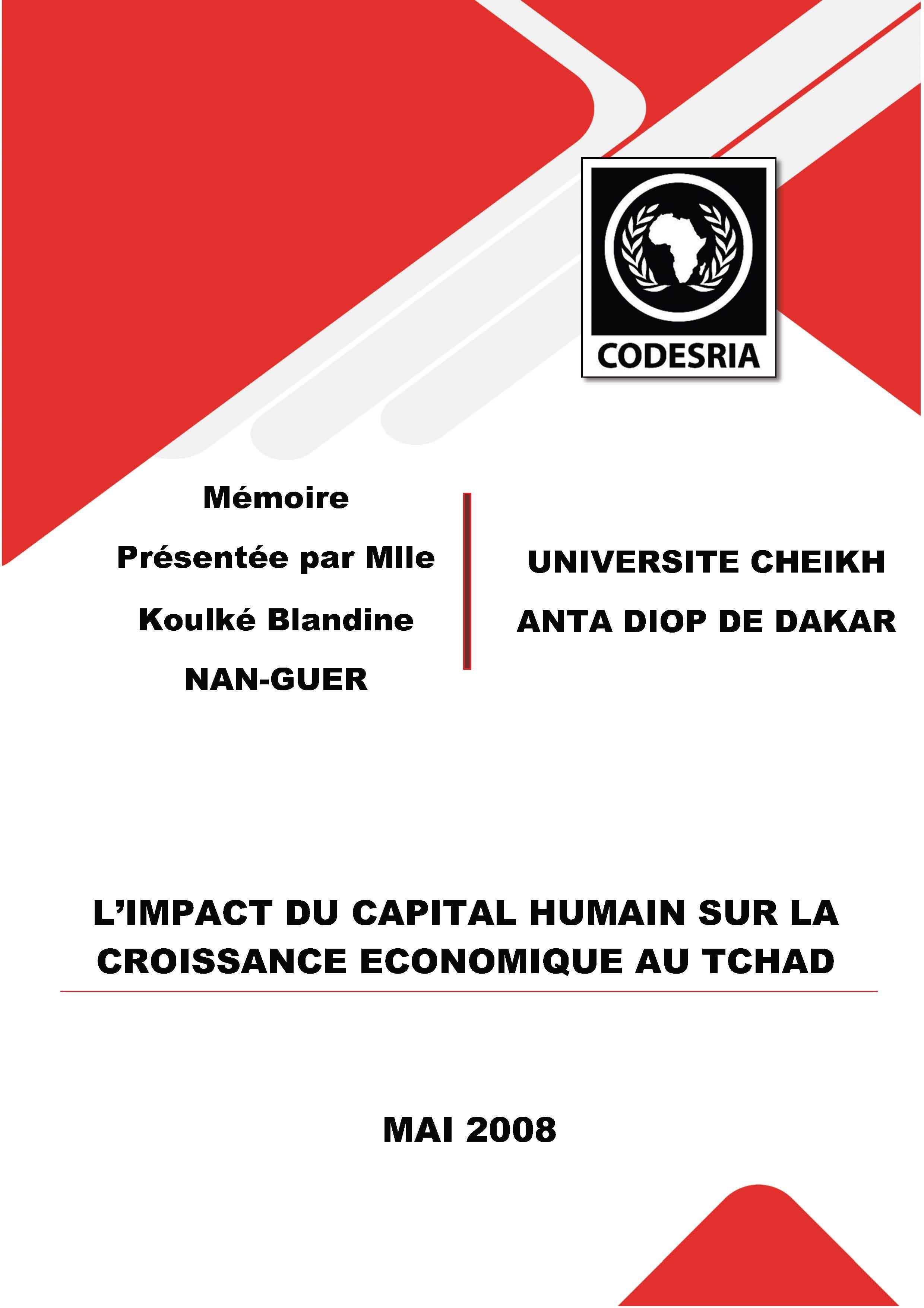L’IMPACT DU CAPITAL HUMAIN SUR LA CROISSANCE ECONOMIQUE AU TCHAD
Keywords:
IMPACT, CAPITAL HUMAIN, CROISSANCE ECONOMIQUE, TCHADSynopsis
Our study focuses on the impact of human capital on economic growth in Chad. Since 2003, economic growth has improved with oil. However neither the framework nor the standard of living of the populations they have truly transformed. The population becomes more both in rural and urban areas. Armed conflicts in the country have aggravated the crisis in the country. The social dimensions have not been spared, in this case the education sector.
The extreme poverty in which the Chadian population lives justified the choice of this topic. The objective of this work is to assess the impact of human capital through education on economic growth in Chad. Review of the literature on human capital and growth has led us to formulate the following hypothesis: The human capital positively influence national product
We estimated a production model in which we have incorporated variables of dull educational enrolment by OLS on the software Eviews. Education has a positive impact on economic growth in Chad corroborating these fact theories of capital and
endogenous growth. Given the impact of human capital on economic growth, investment in the education sector will increase economic growth and maintain over a long period.
Downloads
References
Banque Mondiale (2000) : « Manuel de gestion des dépenses publiques », Washington, pp. 1-2, 18-23.
Barro A.R. (1993): “Some implications of New Growrh Theory for Economic Development “, Journal of International Development, Vol.5, pp.531-558.
Barro R.J (1990): “Government spending: A simple model of endogenous growth», Journal of Political Economy, Vol.98, N°5, pp.s103-s125.
Barro R.J – X. Sala-I-Martin (1992): “Public finance in model of economic growth”, Review of Economic Studies, N°59.
Becker Gary S (1993): “Human Capital” Third Edition, The University of Chicago Press, Chicago and London, pp.390.
Delors Jacques: “ L’éducation : un trésor est caché dedans”, Edition Odile Jacob, 311p, Dakar, Relations Sociales et Relations Internationales.
Denison (1962): “The source of economic growth in the United States and the alternatives before us”, Commita for Eonomic Development, Supplementary paper N°13, New York.
De Vreyer P. : “ La demande d’éducation en Côte d’Ivoire”, Revue d’économie du développement, PUF,N°3 Septembre 1993, pp.49-69.
Dieng M.M (1997) : “ La contribution de l’éducation à la croissance économique du Sénégal”, Mémoire DEA, PTCI.
Doucouré F.B : “Méthodes économétriques : cours et travaux pratiques”, 2ème Edition, FASEG/UCAD.
Faye. W (2004) : “Impact du capital humain sur la croissance économique au Sénégal”, Mémoire fin d’Etudes, COFEB/BCEAO.
Gillis Malcom, Perkins Dwigt H. Rome Michel et Snodgrass Donald R. (1990) : “Economie de Développement”, Editions Universitaires, pp255-280.
Gravot Pierre (1993) : “Economie de l’éducation”, Edition Economica, 244p.






